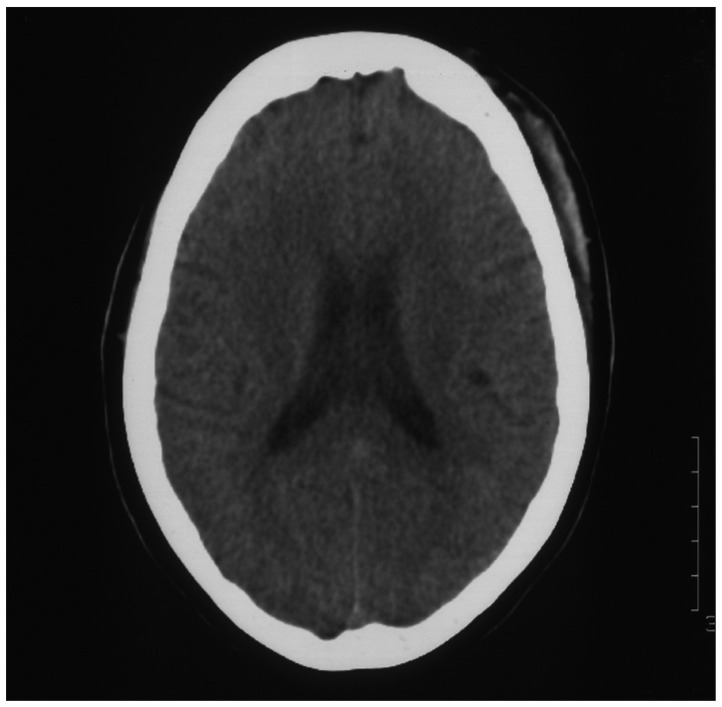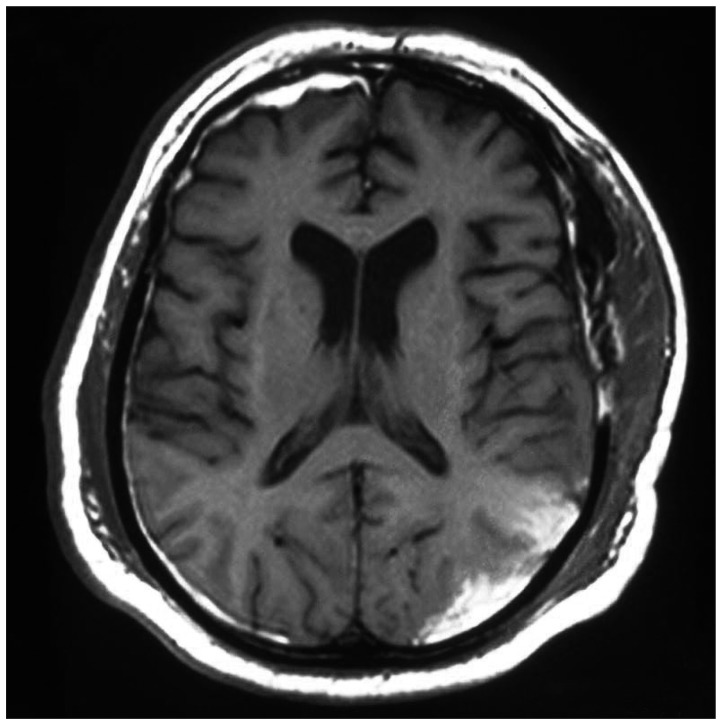J Korean Neurosurg Soc.
2014 Jan;55(1):51-53. 10.3340/jkns.2014.55.1.51.
Patients on Anticoagulants after a Head Trauma : Is a Negative Initial CT Scan Enough? Report of a Case of Delayed Subdural Haematoma and Review of the Literature
- Affiliations
-
- 1Department of Neurosurgery, Red Cross Hospital, Athens, Greece. georgehadji@gmail.com
- 2Department of Neurosurgery, Tzanio General Hospital, Pireaus, Greece.
- KMID: 2191042
- DOI: http://doi.org/10.3340/jkns.2014.55.1.51
Abstract
- Mild traumatic brain injury is common in elderly patients, many of whom are on anticoagulant. The common practice is to discharge these patients from the emergency room if the computed tomography (CT) of the brain is normal. However, a very small proportion of these patients may develop a life threatening intracranial haematoma in the following days. We present here a case of a 66-year-old male on anticoagulant therapy that developed a subdural haematoma 48 hours after a mild head injury, with a normal initial CT scan of the brain. The patient underwent a craniotomy with evacuation of a large subdural clot. Postoperatively he had progressively improved and six months later has a Glasgow Outcome Score of three. This case is characterized by the delayed onset of a subdural haematoma in a patient on anticoagulation and we discuss here the possible pathogenesis related to this phenomenon. We also briefly review the pertinent literature and the current guidelines for the management of this type of head injuries.
Keyword
MeSH Terms
Figure
Reference
-
1. Doherty DL. Posttraumatic cerebral atrophy as a risk factor for delayed acute subdural hemorrhage. Arch Phys Med Rehabil. 1988; 69:542–544. PMID: 3389997.2. Itshayek E, Rosenthal G, Fraifeld S, Perez-Sanchez X, Cohen JE, Spektor S. Delayed posttraumatic acute subdural hematoma in elderly patients on anticoagulation. Neurosurgery. 2006; 58:E851–E856. discussion E851-E856. PMID: 16639305.
Article3. Lee YB, Kwon SJ. A more detailed classification of mild head injury in adults and treatment guidelines. J Korean Neurosurg Soc. 2009; 46:451–458. PMID: 20041055.
Article4. Matsuda W, Sugimoto K, Sato N, Watanabe T, Fujimoto A, Matsumura A. Delayed onset of posttraumatic acute subdural hematoma after mild head injury with normal computed tomography : a case report and brief review. J Trauma. 2008; 65:461–463. PMID: 18288015.
Article5. Menditto VG, Lucci M, Polonara S, Pomponio G, Gabrielli A. Management of minor head injury in patients receiving oral anticoagulant therapy : a prospective study of a 24-hour observation protocol. Ann Emerg Med. 2012; 59:451–455. PMID: 22244878.
Article6. NICE Guidelines : Head injuries. Accessed on January 7, 2013. Available at : http://guidance.nice.org.uk/CG56.
- Full Text Links
- Actions
-
Cited
- CITED
-
- Close
- Share
- Similar articles
-
- Spinal Subdural Hematoma Following Cranial Subdural Hematoma : A Case Report with a Literature Review
- CT Brain Scan of the Subdural Hematoma: Analysis of 5 Cases
- Evolution of Chronic Subdural Hematoma based on Brain CT findings and Appropriate Treatment Methods
- Clinical Analysis of Delayed Intracranial Hemorrhage in Head Injury
- Chronic Subdural Hematoma Due to Cumulative Trauma to the Head




